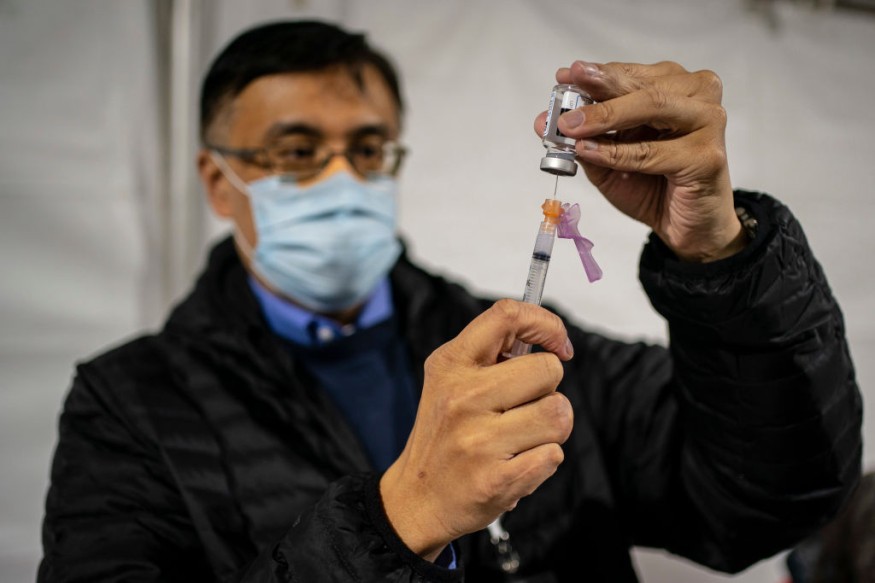Some People Fell Ill With Rare Blood Disorder After Getting Their First COVID-19 Vaccine

Some COVID-19 vaccine recipients developed a rare blood disorder upon receiving their first dose. This was the case of 72-year-old Luz Legaspi, who woke up with bruises on her arms and legs, and blisters that bled inside her mouth after receiving her first shot of Moderna's COVID-19 vaccine, The New York Times reported.
Legaspi was hospitalized in New York City on Jan. 19 with a severe case of immune thrombocytopenia, which is a lack of blood component platelets needed for clotting.
Dr. Gregory Michael, 56, has the same condition that led to his death. Michael was an obstetrician in Miami Beach. His symptoms showed three days after he received the Pfizer-BioNTech vaccine. Treatments failed to restore his platelets, and he died from a brain hemorrhage after two weeks.
It is not yet confirmed whether the said blood disorder is related to the COVID-19 vaccines due to a lack of studies. Over 31 million people in the United States have already received their first dose, and 36 similar cases had been reported to the government's Vaccine Adverse Event Reporting System (VAERS) last month.
Related story : Drive-Through Vaccination Organized by a Latina to Increase Vaccine Trust in Latino Communities
COVID-19 Vaccine Side Effects
There are side effects linked with the Pfizer and Moderna COVID-19 shots that are described as only slightly worse than those of other vaccines, Washington Examiner reported. VAERS data showed that 24.1 percent of the first Moderna shot reported headaches than 25 percent of those receiving the meningitis B vaccine.
The Centers for Disease Control and Prevention (CDC) said the most common adverse side effects of the COVID-19 vaccines are headache, fatigue, dizziness, nausea, chills, fever, and pain at the injection site.
One unusual side effect of the COVID-19 vaccines is difficulty breathing, which a relatively small share of recipients noted. However, it is unclear how many of those fully recovered or needed further medical attention.
"That's just your immune system working, so that I don't consider anything serious," Dr. Paul Offit, a virologist at the Children's Hospital of Philadelphia and a member of the FDA's panel of vaccine experts, said in the report.
Meanwhile, Pfizer said in a statement that they take reports of adverse events very seriously. It added that it was aware of thrombocytopenia cases in vaccine recipients.
"We are collecting relevant information to share with the FDA. However, at this time, we have not been able to establish a causal association with our vaccine," Pfizer said in a statement as reported by The News Tribune.
On the other hand, Moderna said the firm continuously monitors its COVID-19 vaccine's safety using all sources of data and consistently shares safety information with regulators.
Hematologists, with expertise in treating immune thrombocytopenia, said they suspected that the COVID-19 vaccine did play a role. But they added that the cases after a shot were likely to be exceedingly rare and possibly the result of an unknown predisposition in few people reacting to a vaccine by developing an immune response that destroys their platelets.
"I'm assuming there's something that made the people who developed thrombocytopenia susceptible, given what a tiny percentage of recipients they are," said Dr. James Bussel, a hematologist and professor emeritus at Weill Cornell Medicine, who has written more than 300 scientific articles on the platelet disorder.
He also told The New York Times that having it happen after a shot is well-known and has been seen with many other vaccines. But he noted that they still don't know why it happens.
Subscribe to Latin Post!
Sign up for our free newsletter for the Latest coverage!
















